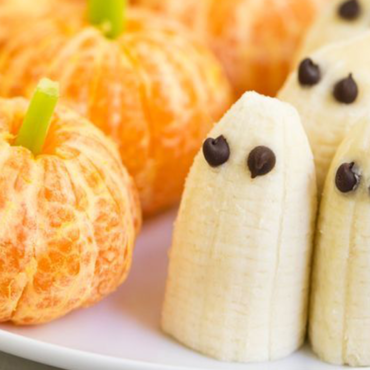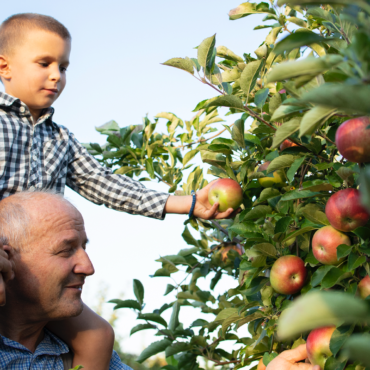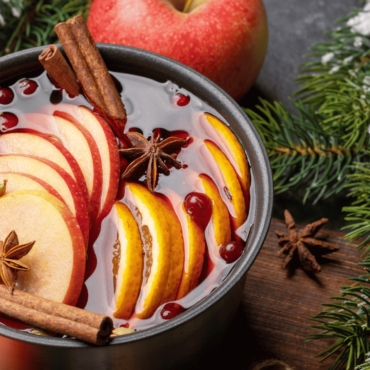Blog & News
Food waste

As a Food Fight workshop speaker, I often find that the sessions not only allow me to share information but also frequently teach me new things! Participants’ feedback provides valuable tips, and their questions sometimes prompt me to conduct further research after the workshops to broaden my knowledge. In this article, I’ll address some frequently asked questions about food preservation.
What are the best tips for extending the life of finicky fruit and vegetable ?
• SPROUTS
If there’s something that doesn’t keep for long, it’s sprouts! Interestingly, bean sprouts can be stored longer if immersed in water in the refrigerator. Just remember to change the water every 2 days.
• MUSHROOMS
If you tend to lose them, it’s likely due to excess moisture. Mushrooms are best stored in a paper bag. If you don’t have one, pierce holes in plastic wrap with a fork to release excess moisture.

• BERRIES
Strawberries, raspberries, and other berries spoil when exposed to too much moisture. It’s crucial not to wash them and to add a dry cloth at the bottom of the container to absorb excess moisture. Lastly, cutting off oxygen will extend their shelf life (airtight containers like Mason jars work excellently).
• HERBS
Unlike mushrooms and berries, herbs need added moisture. The best way is to treat them like flowers by placing the stems in a glass of water. To maximize their shelf life, cover them with a plastic bag. Most herbs can be stored in the refrigerator, except for basil, which should remain at room temperature.
• BANANAS
Bananas are climacteric fruits, meaning they continue to ripen at room temperature. When your bananas reach your desired ripeness but you’re not ready to eat them, place them in the refrigerator to extend this stage by a few days. The peel will turn brown, but the inside will remain the same. You have to try it to believe it!
Is it better to pre-wash fruits and vegetables?
It depends! Vegetables that tend to lose water and soften (like lettuce, greens, celery, radishes, and herbs) can be washed without issues before being stored in the refrigerator. Washing will provide them with some water and help keep them crisp. For other fruits and vegetables, it’s not recommended unless you plan to consume them soon. However, if washing and even pre-cutting your vegetables encourages their consumption, it might be a winning strategy to do so every 3-4 days.

How to know if food is no longer safe to eat?
Generally, we can rely on our senses to determine if food is still safe to eat. For instance, if the taste, smell, or appearance of the food has changed, it’s not recommended to consume it. However, some microorganisms are not visible to the naked eye, making it hard to tell. The number one tool to help decide if a food is still consumable after its expiration date is definitely “Meilleur avant, bon après?” from MAPAQ. To estimate the shelf life of foods once the container is opened (when the date no longer applies), the Thermoguide is the tool of choice. Using these two tools, here are a few specific foods frequently asked about in workshops.

• CANNED FOODS
Canned foods can be consumed safely after the expiration date, except if the can is bulging, rusted, or dented at the lid joint or side seam. If it’s bulging elsewhere, you can still consume the contents.
• LEFTOVERS
Shelf life varies depending on the type of dish but generally ranges from 2 to 6 days. To maximize the shelf life of your leftovers, refrigerate them as soon as possible after cooking.
• EGGS
In Quebec, fresh eggs in their shells can be stored for several weeks in the refrigerator, even after the expiration date. If in doubt, try the water test! Place the egg in a glass of water; if it floats, it’s not safe to eat.
Is the nutritional value of food affected by preservation methods?

Generally, freezing is the preservation method that best retains the maximum nutrients in foods. The sooner you freeze (fresh foods), the more nutrients are preserved.
Refrigeration or room temperature storage maintains nutritional value well, but it’s important to know that the amount of vitamins and minerals decreases gradually over time (nothing to worry about!).
When immersed in water, foods will lose some nutrients, which migrate to the water. This isn’t ideal. However, if it helps you consume these foods, it’s more nutritious to eat a crisp celery with fewer vitamins than to compost a wilted one!
Dehydration retains most vitamins and minerals, especially if done below 45°C. Lastly, canning affects the nutritional value the most due to heat treatment. Once again, it’s important to put things in perspective and remember that canned foods still contain many nutrients, even if slightly less than in their fresh version.
Still have unanswered questions? Join our Facebook group Zero-Waste community to ask your questions and get answers from our very active members.

Experte de la lutte contre le gaspillage alimentaire
Elisabeth Paradis
Passionnée de bouffe, Elisabeth aime utiliser l'alimentation comme façon de connecter avec les gens. Pour elle, manger est lié au plaisir et au partage, mais aussi à ses valeurs environnementales. Si elle n'est pas dans sa cuisine, vous la retrouverez dans son jardin, sur son vélo, ou en train d'être la fan numéro 1 de ses chats Dumpling et Kimchi.
View all posts...Related posts :
Contact us
Earth Day Canada
5818, boulevard Saint-Laurent
Montréal (Québec) H2T 1T3 Canada
Phone : (514) 728-0116
Toll free : 1 800 424-8758
Fax : (514) 303-0248
Email: hello@earthday.ca
2026 © Earth Day Canada. All rights reserved.
Privacy policy · Terms of use · Trademark









